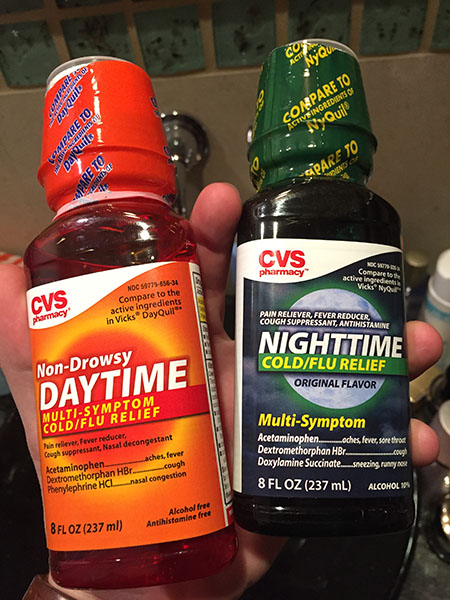The holiday season is upon us, and that means it’s flu season! To stay in tip-top shape throughout the winter, we joined the #StayHealthyWithCVS campaign, sponsored by CVS. These tips and tricks for fighting the flu are nothing to sneeze at!


FabOverFifty recently sat down with Papatya Tankut, registered Pharmacist and Vice President of Pharmacy Affairs at CVS Health, who shared some surprising statistics about this unwanted winter visitor. After you’ve read her interview, tell us in the comments section how you’re protecting yourself.
![]()
What are the best ways to protect yourself from the flu this year, especially someone in your house gets it?
Get vaccinated. Getting a flu shot is the most effective way to protect yourself and your family from catching the flu. The Centers for Diseases Control and Prevention recommends that everyone ages six months and older get vaccinated. For those over 65, the high dose vaccine is available at CVS/pharmacy and MinuteClinic locations. It contains four times the antigens as the regular flu vaccine and is intended to create a stronger immune response for those who are at greater risk of developing severe flu-related illnesses.
Frequently wash hands throughout the day. Touching everyday items like door handles and other surfaces can be difficult to avoid. To help combat germs, wash hands frequently (especially after coughing or sneezing) with soap and warm water for at least 20 seconds and avoid touching your mouth, eyes and nose areas. CVS/pharmacy offers alcohol-based soaps and hand cleansers that are especially effective when you’re on-the-go.
Practice good health habits. Getting plenty of sleep, being physically active, managing stress, drinking adequate fluids, and eating nutritious food are all healthy habits that can help to keep your immune system in top condition during flu season.
Stay home if you’re ill. A recent CVS/pharmacy flu survey found that two-thirds (67%) of employed Americans would still go to work even if they were feeling ill with flu-like symptoms. Whether you’re a working adult or school-aged child, it’s important to understand the preliminary symptoms of the flu, and if you’re experiencing them, stay home. This will help bolster your immune system and avoid the spread of germs throughout the workplace or classroom.
 Help make sure your grandkids are safe. Children younger than age 5 (especially under the age of two) are at high risk for flu-related complications. For school age children, remind them of the importance of handwashing and using tissues when they sneeze. Please note the influenza vaccine is not approved for children younger than six months of age.
Help make sure your grandkids are safe. Children younger than age 5 (especially under the age of two) are at high risk for flu-related complications. For school age children, remind them of the importance of handwashing and using tissues when they sneeze. Please note the influenza vaccine is not approved for children younger than six months of age.
If someone you know is expecting, they should take extra precautions. Pregnant women are more susceptible to getting sick, including catching the flu, because their immune systems are weaker than usual. During pregnancy, the flu can escalate quickly and be complicated by infections such as fetal distress or pneumonia. Pregnant women should make sure they are up to date on all vaccines, including the flu shot.
Who are the most likely people to get the flu, and why?
Most healthy people who get the flu will recover in less than two weeks. Most often, younger children and adults over 65 are more susceptible to getting the flu virus because both demographics have weaker immune systems. Overall, everyone is at risk to get the flu, so your best bet to stay healthy is to get your flu shot as soon as possible.
 If you do get the flu, what are some OTC remedies to help you get better as quickly as possible?
If you do get the flu, what are some OTC remedies to help you get better as quickly as possible?
While there is no cure for the flu virus, remedies to help reduce your symptoms and make you feel better while you are sick are available at your local CVS/pharmacy, including CVS Maximum Strength Adult Cold, Flu & Sore Throat, CVS Non-Drowsy Daytime Multi-Symptom Cold/Flu Relief, and CVS Multi-Symptom Nighttime Cold/Flu Relief. Prescription antiviral drugs also can make your illness milder and shorten the time you are sick, but still be sure to get lots of rest and drink plenty of fluids throughout the duration of the virus.
If you do get the flu, what are the best ways to protect your loved ones from getting it, too?
If you become ill with the flu, there are some ways to best protect the rest of your household. As most people know, colds and flu are spread mostly by direct contact, so be sure to cover your mouth and nose with a tissue and discard used tissues right away. Wash your hands with warm water for at least 20 seconds. Don’t forget to grab some disinfecting spray to use on common surfaces in your household, such as doorknobs, remotes, or cups. As harsh as this may sound, if you are serious about keeping the rest of your house safe from the flu, it’s a good idea to create a designated sick room where the sick person can stay while getting better.
Be sure to fully equip the room with everything you may need, to avoid having others fetch items for you, like tissues, medications, a cooler with fluids and anything else to make your stay somewhat enjoyable. This technique should be used in the bathroom too, if you have more than one. If not, make sure all of your towels, soap and toothbrush are completely separate from the rest of the households.

What is the cost of getting a flu shot versus getting the flu?
The flu vaccine is available at no cost through many insurance plans, including Medicare Part B. CVS/pharmacy and MinuteClinic can directly bill many national and regional health plans that cover all or part of the cost of a flu shot.
Recent findings by the CDC in the journal Vaccine show that the flu carries an economic toll on the nation every year. The cost for households with young children who catch the flu can range between $300-$4,000 dollars for treatment, depending on severity. On top of that, it costs caregivers as well, since they are taking time off from work, which can translate to lost wages.
Is there a way to tell if you have the flu coming on, versus a cold?
A cold and the flu are often confused with one another, but flu symptoms tend to be more severe. If you have a cold, you’ll probably experience symptoms such as runny or stuffy nose, sore throat, sneezing, mild-to-moderate fever, a cough, headache or body aches, and some mild tiredness. With the flu, your symptoms generally are a dry, hacking cough, moderate-to-high fever, sore throat, shaking chills, severe muscle or body aches, headache, stuffy and runny nose, and profound fatigue that may last up to two weeks.
Will a flu shot give you 100% protection?
The flu vaccine does not guarantee 100% protection from the illness since many variables must be considered. At least two factors play an important role in determining the level of protection the vaccine will provide: The age and pre-existing health of the person, and the match of flu strains and the vaccine for that year. While the vaccine cannot guarantee 100% protection, it is still the best protection available against the flu. Also, studies have shown that the flu shot benefits public health and the community as a whole.
How is the flu most often passed from one person to another?
Anyone who is infected with the flu can spread it to others, even up to six feet away. The virus is most often passed along through coughing, sneezing, talking and touching common surfaces. To avoid getting sick altogether, try to stay away from those who are sick, and if you do get the flu this season, please stay home.
 For certain age groups, including very young children and those over 65, the flu can be more dangerous, so it’s important for everyone six months and older to be vaccinated. While researchers have found evidence that the flu can cause pneumonia, there is no evidence that the virus easily turns to pneumonia. However, those living in nursing homes are at a higher risk for this complication due to their compromised immune systems.
For certain age groups, including very young children and those over 65, the flu can be more dangerous, so it’s important for everyone six months and older to be vaccinated. While researchers have found evidence that the flu can cause pneumonia, there is no evidence that the virus easily turns to pneumonia. However, those living in nursing homes are at a higher risk for this complication due to their compromised immune systems.
Find out where you can get your flu shot here.

